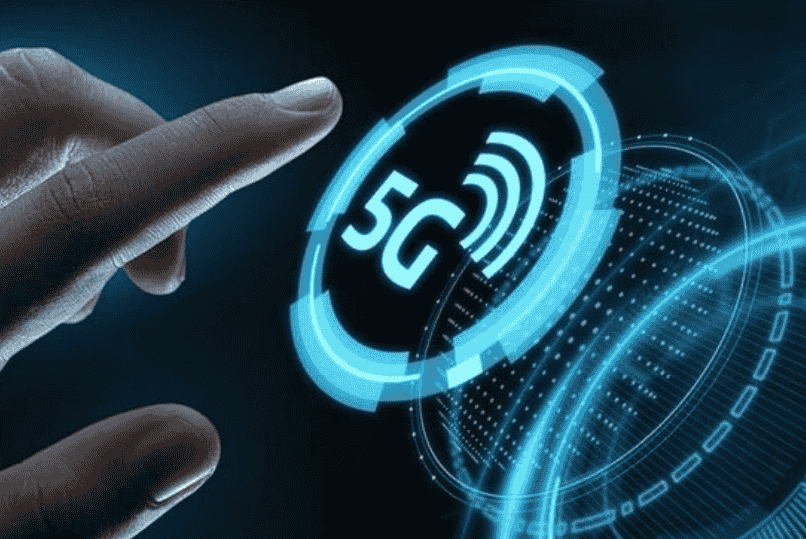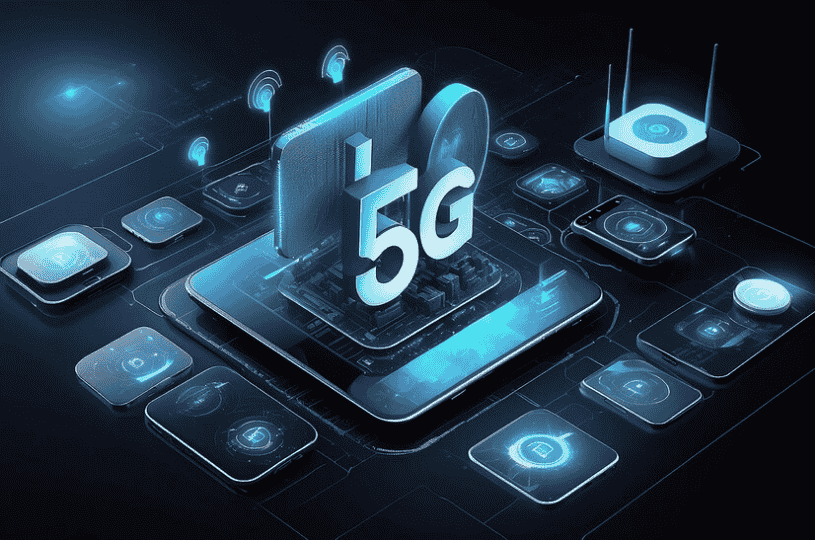
- tecnotales.com
- September 23, 2024
- 0 Comments
Impact of 5G on Manufacturing Industries
The rise of 5G technology is transforming industries worldwide, and manufacturing is at the forefront of this revolution. The impact of 5G goes beyond faster connectivity it is enabling automation, smart factories, predictive maintenance, and real-time monitoring that were previously unimaginable. Companies like T-Mobile are showing how 5G can change the manufacturing industry. This technology can improve production lines, logistics, and retail.
At TecnoTales, we provide insights into how emerging technologies like 5G are reshaping the future of business and industries.
Understanding the Impact of 5G in Manufacturing
Why 5G Matters for Industries
The 5G industry offers ultra-low latency, high bandwidth, and reliable connectivity, making it ideal for industrial settings. With 5G for manufacturing, machines, sensors, and robots can communicate in real-time, reducing downtime and boosting efficiency.
Key Benefits for Manufacturers
Automation: Smart robots can be coordinated wirelessly using 5G network equipment, reducing wiring costs and improving flexibility.
Real-Time Data: Manufacturers gain real-time insights into production lines through IoT sensors.
Safety Enhancements: 5G industrial applications enable remote monitoring of hazardous environments.
Energy Efficiency: Smarter use of energy with connected devices improves sustainability goals.

5G Use Cases in Manufacturing
Smart Factories
The 5G impact on manufacturing is most evident in smart factories. With high-speed connectivity, systems such as quality checks, robotic arms, and supply chain management can work together seamlessly.
Predictive Maintenance
With 5G manufacturing networks, equipment health can be monitored continuously. Predictive analytics reduce costly breakdowns and keep production moving.
Supply Chain Optimization
Using T-Mobile 5G in manufacturing, companies track shipments in real-time. This helps them run smoother operations and have fewer disruptions.
Remote Operations
5G industry applications also allow engineers to operate and troubleshoot machines remotely, reducing downtime and operational costs.
T-Mobile 5G in Manufacturing Industry
Driving Innovation
T-Mobile 5G in manufacturing industry provides reliable coverage for factories, warehouses, and logistics centers. This allows manufacturers to experiment with cutting-edge solutions like digital twins and AI-driven robotics.
Logistics and Transportation
With t mobile 5g technology in logistics, companies track fleets in real-time, ensuring just-in-time deliveries. The integration of 5G in transportation industry further reduces inefficiencies in supply chains.
5G Industry Applications Beyond Manufacturing
Retail Transformation
The impact 5g extends beyond factories. 5G retail use cases include real-time inventory tracking, AR shopping experiences, and customer personalization. Retailers can optimize operations using 5g in retail technologies.
Healthcare Benefits
The 5g impact on healthcare is significant—supporting telemedicine, remote surgeries, and connected medical devices. Hospitals and global companies are already exploring successful 5g services examples in patient care.
Transportation & Logistics
The 5g transportation sector is experiencing breakthroughs with connected vehicles, traffic optimization, and fleet management. 5g in transportation ensures safety and efficiency in urban mobility and logistics.

5G Technology Disruption in Business
How 5G Disrupts Traditional Models
The 5g technology disruption is creating new possibilities for businesses. For manufacturing, this means fewer manual processes, more automation, and smarter analytics.
Why Enterprises Need to Adopt 5G
A common question arises: Why do enterprises need to adopt 5g pptx? The answer lies in competitiveness. Companies adopting 5g impact on business will have an edge in efficiency, productivity, and innovation.
5G Network Equipment and Deployment
Best Telecom Equipment for 5G Deployment
For manufacturers to embrace 5g industrial applications, they need reliable infrastructure. The best telecom equipment for 5g deployment ensures uninterrupted connectivity and scalability across industries.
Leading 5G Manufacturers
5G manufacturers like Ericsson, Nokia, and Huawei are using advanced technology to create real industrial 5G networks.
Global Companies with Successful 5G Services Examples
Manufacturing Leaders
BMW: Leveraging 5g in manufacturing industry for connected production lines.
Siemens: Using 5g industrial applications for automation and digital twins.
Samsung: Demonstrating 5g impact on business through smart factory setups.
Retail and Logistics Leaders
Walmart: Testing 5g retail use cases for real-time stock management.
DHL: Implementing t mobile 5g technology in logistics for faster deliveries.
Challenges of 5G in Manufacturing Industry
Infrastructure Costs
Deploying 5g network equipment in factories can be costly initially.
Security Concerns
With high connectivity comes vulnerability. Cybersecurity must be a top priority in 5g industry applications.
Workforce Training
Adopting 5g for manufacturing requires reskilling employees to handle digital tools.
The Future of 5G in Manufacturing
Growth Potential
Experts predict that 5g in manufacturing will dominate industrial automation by 2030.
Integration with AI & Robotics
When combined with AI, the 5g impact on manufacturing will enable more intelligent production systems.
Expansion into Transportation & Retail
As 5g transportation industry and 5g in retail mature, interconnected ecosystems will become the norm.
Conclusion
The impact of 5G on the manufacturing industry is undeniable. From automation to predictive analytics and smart logistics, 5g manufacturing is shaping the future of industrial operations. With T-Mobile 5G, many companies in manufacturing are using new ideas. Global businesses are adopting 5G applications to stay ahead.
At TecnoTales, we believe that understanding 5g impact on business is key for enterprises planning long-term strategies. As industries continue adopting this disruptive technology, the future will be marked by smarter factories, connected transportation, and more personalized retail experiences.
Frequently Asked Questions
What is the main impact of 5G on manufacturing?
The impact of 5g includes real-time monitoring, automation, predictive maintenance, and improved efficiency in factories.
Why should enterprises adopt 5G?
To stay competitive, reduce costs, and enhance productivity. (Why do enterprises need to adopt 5g pptx)
How is T-Mobile using 5G in logistics?
Through t mobile 5g technology in logistics, enabling real-time fleet tracking and supply chain visibility.
Which companies are leading in 5G services?
Global companies like BMW, Siemens, Samsung, Walmart, and DHL are prime 5g manufacturers and service adopters.
Is 5G useful in healthcare?
Yes, the 5g impact on healthcare includes remote surgeries, connected medical devices, and improved telemedicine.